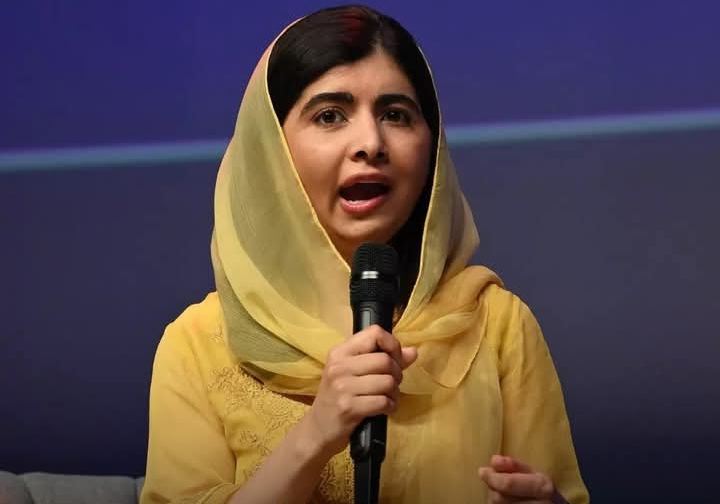By Adeyemi Adekunle
Nobel Peace Prize laureate Malala Yousafzai has made an impassioned plea to Muslim leaders, urging them to oppose the Afghan Taliban government’s draconian restrictions on women and girls’ education. Speaking at the international summit on “Girls’ Education in Muslim Communities” in Islamabad, Malala called on leaders to use their influence to prevent the legitimization of a regime that has systematically erased women from public life.
“Do not legitimise them,” Malala implored. “As Muslim leaders, now is the time to raise your voices, use your power. You can show true leadership. You can show true Islam.” Her speech, delivered to ministers and education officials from dozens of Muslim-majority nations, reflected both urgency and resolve as she addressed the pressing crisis.
Since their return to power in 2021, the Afghan Taliban have implemented oppressive measures that the United Nations has described as “gender apartheid.” Women and girls have been barred from secondary schools, universities, many government jobs, and public spaces.
These sweeping restrictions have provoked global outrage and painted a grim picture of life for Afghan women under the Taliban’s austere interpretation of Islamic law.
Malala, a survivor of Taliban violence herself, minced no words as she laid bare the regime’s intentions. “Simply put, the Taliban do not see women as human beings,” she told the conference. “They cloak their crimes in cultural and religious justification.”
The 27-year-old activist recounted her journey from being a schoolgirl campaigning for education rights in Pakistan to surviving an assassination attempt by the Taliban in 2012. Shot in the face for defying their anti-education stance, Malala’s resolve only strengthened. In 2014, she became the youngest-ever recipient of the Nobel Peace Prize, dedicating her life to advocating for women and girls’ education worldwide.
At the Islamabad summit, Malala expressed concern over the lack of consensus among international leaders on how to address the Taliban’s policies. Some nations call for total isolation of the Afghan regime, while others advocate cautious engagement to encourage change. Despite being invited, no representatives from the Taliban government attended the summit, a point confirmed by Pakistan’s Education Minister Khalid Maqbool Siddiqui.
“The Taliban are explicit about their mission: they want to eliminate women and girls from every aspect of public life and erase them from society,” Malala warned. Her remarks echoed the sentiments of human rights organizations and international observers, who have repeatedly denounced the Taliban’s policies as systematic oppression.
The summit, organized with the backing of the Muslim World League, sought to galvanize support for education reforms in Muslim communities, with a specific focus on addressing the crisis in Afghanistan. Delegates discussed strategies to advocate for women’s rights within the context of Islam, countering the Taliban’s justification for their policies.
The absence of the Taliban from the dialogue did not deter Malala from reiterating her call for collective action. She challenged leaders of Muslim-majority countries to confront the Afghan rulers’ actions openly and decisively. “This is not just about Afghanistan—it’s about setting an example for the world,” she emphasized.
Despite widespread condemnation, the international community remains divided on how to approach the Taliban. No country has formally recognized their government, but some regional players have engaged with Kabul on trade and security issues, prioritizing pragmatism over principles. This indecision, Malala argued, emboldens the Taliban to continue their oppressive practices without accountability.
The weight of Malala’s words at the summit extends beyond rhetoric. Her plea underscores a moral and political crossroads for Muslim nations, many of which have struggled to navigate their roles in addressing Afghanistan’s ongoing crisis. By urging leaders to embody the values of Islam that advocate for justice, equality, and education, Malala seeks to mobilize a collective response against what she describes as a human rights catastrophe.
As the world watches, the voices of Afghan women and girls grow quieter under the Taliban’s iron fist. Malala’s call to action is a reminder that their plight is far from a domestic issue—it is a global concern that tests the boundaries of international solidarity and moral responsibility. For many in Islamabad’s summit hall, her words resonated not only as a critique of the Taliban but as a challenge to act decisively in the name of justice.
The question now is whether these leaders will answer her call. Will Muslim nations rally together to uphold the rights of women and girls in Afghanistan, or will silence and division allow the Taliban’s vision to prevail?




